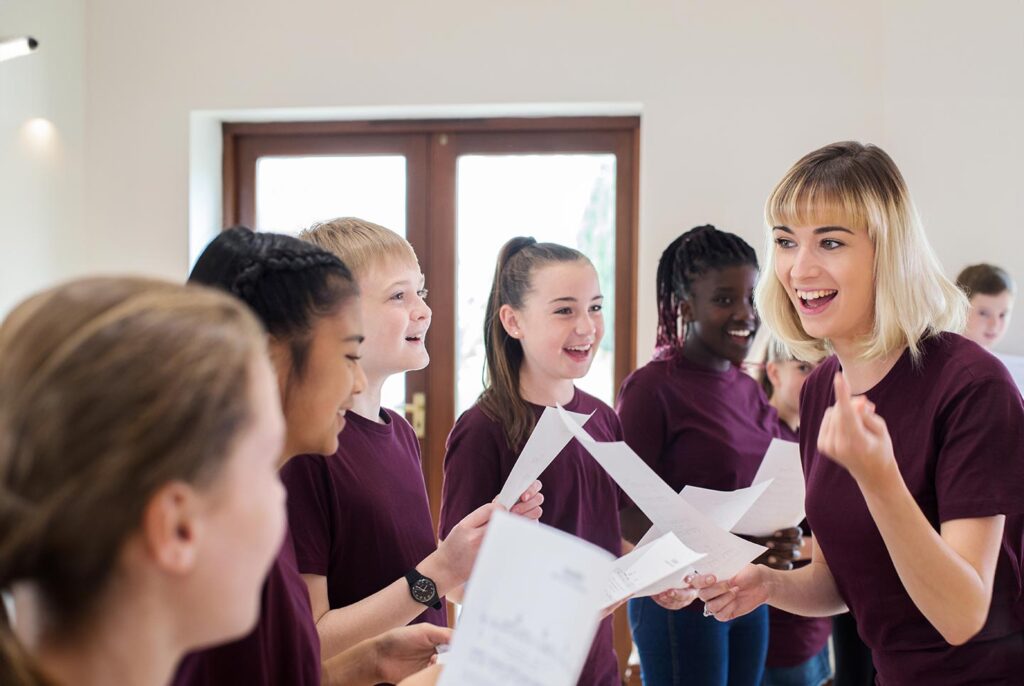Improving staff engagement: Advice from Fiona Murphy, Citadel Gymnastics
In the first part of this series, we explored why your organisation may be experiencing a lack of employee engagement, and what you can do to solve the problem.
Now, we share advice from Fiona Murphy – founder of Citadel Gymnastics. Since opening Citadel in 2018, Fiona has found ways to improve staff engagement at her club. She shares her insights and experiences with us to help other business owners and managers – just like you.
I’ve tried lots of different ways of communicating with my staff. I tried group meetings where I’d ask everyone to give me their thoughts and you could see the tumbleweeds just roll in. Nobody says a word. When someone has become comfortable and their club feels like home, they don’t want to insult you or say what’s wrong, but I think kindness can sometimes hurt more.
A lot of this is down to personality types. You’re going to get different people with different approaches, so we have different ways in which we communicate. We send emails to our staff, talk to them, take an interest in their lives, have an open-door policy, and also mentor on the floor sessions. This is where coaches are supervised by higher-level coaches who provide positive feedback, ideas for improvement and ask them if there’s anything you need from us. Whatever it is they’re worried about on the floor, they get to voice it.
Trying something new
As we were coming up to September, we took this opportunity to do something we’ve never done before. I had individual meetings with everyone where I asked them things like how their have kids done over summer, aspirations and goals for September, do you have restrictions on what age you can work with, etc. What they didn’t know about were the extra few questions I threw at them.
The first question was “What do you believe your job position is here?” And this stumped them way more than I thought it would. I had a tick box list to see if they would come up with the same criteria that was expected of them. This included obvious points such as teaching gymnastics, creating lesson plans, attending meetings and regular training, and communicating with parents. We got there with everyone eventually but because of the order they said their duties, we saw their priorities and it gave us a better understanding of how their different personality types work.
Question two was “What do you believe a coach in this position should be doing that we don’t ask of you?” So where do you think our club is lacking and where should be putting in extra duties? Again, we got some interesting insights.
The third question was “What do you believe you do that we don’t notice?” which ties in with the running joke around here – “Fiona sees everything!” We had a younger coach who’s 16 speak up – she felt like she didn’t get appreciation for recent work she did that wasn’t actually teaching gymnastics. Of course, we did appreciate her work, told her how wonderful it was and gave her credit but the fact that not every coach saw her that way was eye-opening.
Lots of other coaches had similar ideas for this question too. Our club’s director is phenomenal and orchestrates to the best quantity you can imagine but when she comes in she’s grabbing a coach from there and here and she said, “I don’t always think you see just how chaotic it is.” Again, of course, we do, and we’ve been in the position so we can relate but it was that she wasn’t told that we really overly appreciate just how much she does. This question let us see how our staff felt, and because it was phrased in such a way they all said something when previously they were trying to be kind.
Question four was “If you were sitting on the other side of this desk and you were in charge, what would you change to make this whole place run more smoothly?” They finally got over their fear at this stage and all their ideas started coming out! And finally, the fifth question was “What do you need from us to make your job better?” Whether that’s more fun, a better circumstance, mentoring, training, an extra day off because of upcoming exams or a connection with someone. This gave them another chance to be heard and not be afraid of telling us. Asking our staff these questions changed everything from how they saw us and how we saw them. It was brilliant.
It’s not about the words you say but about how you say it
I remember what it was like to start in a gymnastics club without any experience. I didn’t walk in as a free gymnast – I worked my way through the ranks, so I was as fresh as you can imagine and knew nothing about the world so remembering those feelings is very important to me. But a lot of it is about approach and how each individual needs to be communicated with. My ethos is that it’s not about my staff, it’s about me adapting to each person. You’ll have some people who aren’t very strong with words, some who appreciate having it formally broken down, some who need to be approached on the floor in a really simple way, some that need a seed planted in their mind to think about for a few weeks, and some who are analytical thinkers. The key is to suss everyone out as people first and then go from there.
One of the lessons I’ve learned is that communication is 3% verbal and 97% non-verbal. It’s not about the words you say it’s about how you say it, when you say it, and how you get the message across. Overall, you need to adapt, listen to what your staff have to say, and see how it goes from there.
–
We’d like to say a big thank you to Fiona Murphy for spending her time speaking with us. This article was based on a webinar shared in our LoveGymnastics Facebook Group. If you’re involved with a gymnastics or football club and want to connect with likeminded individuals, join our dedicated Facebook Communities:















